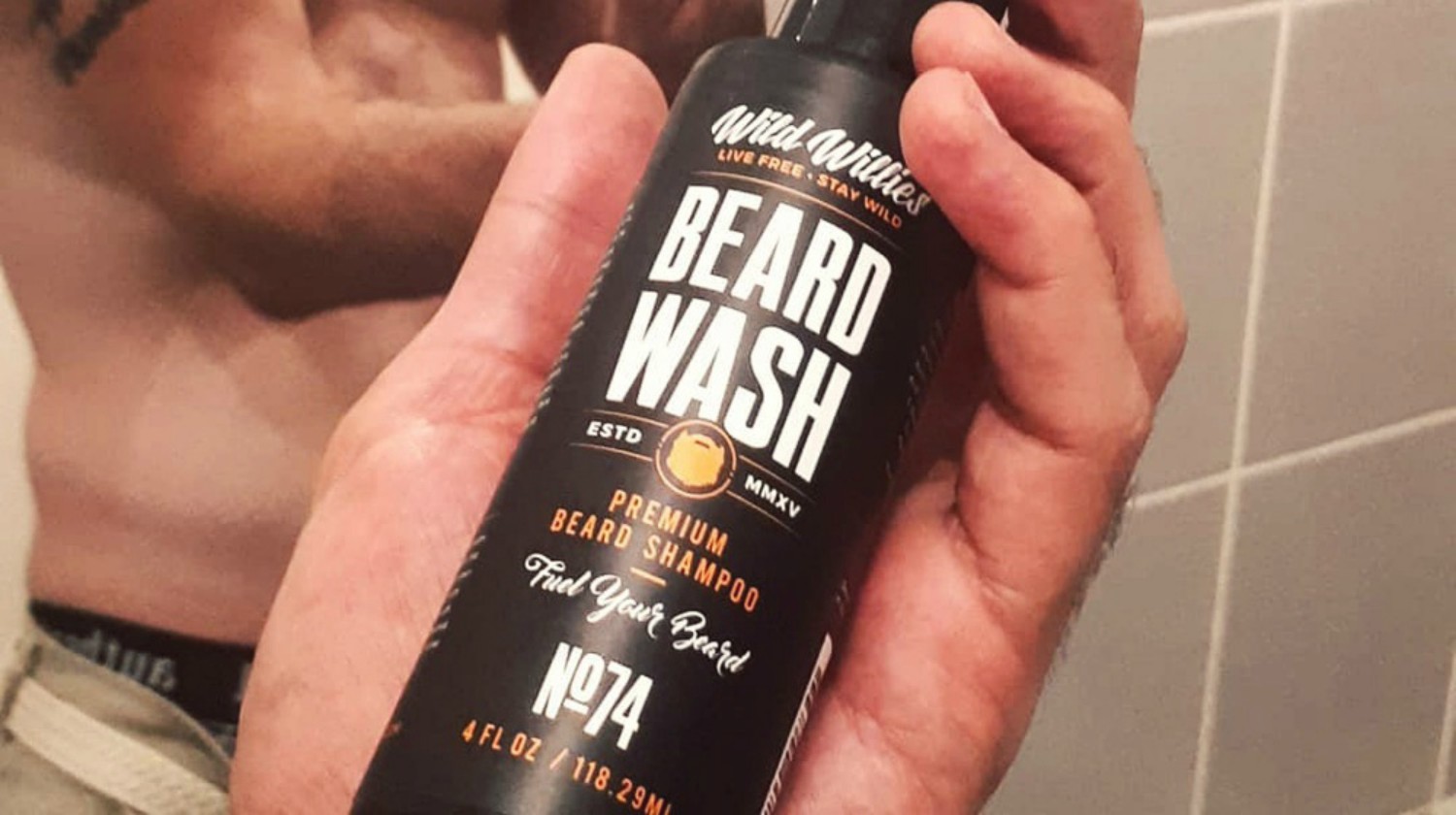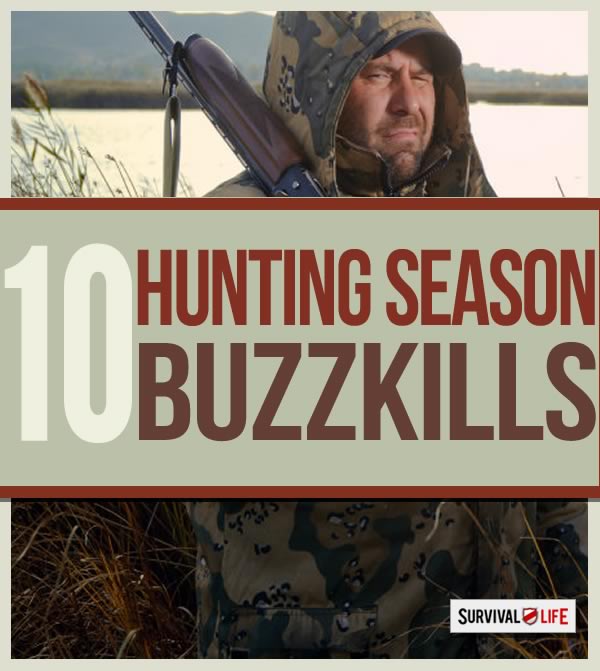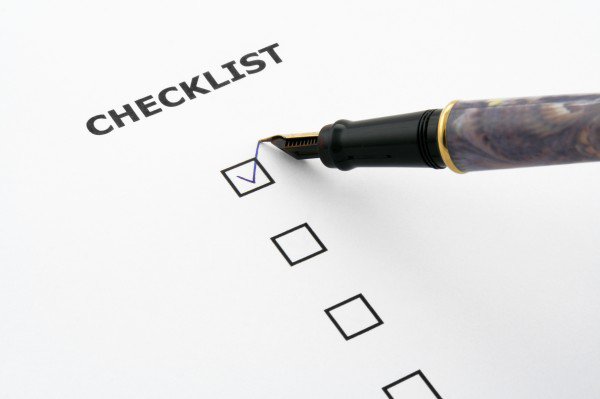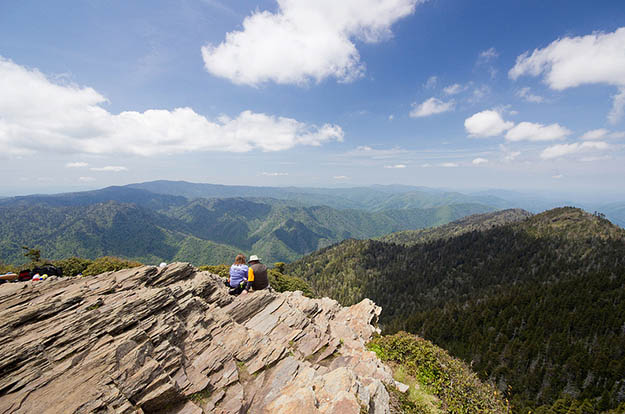Fishing, Hunting, & Trapping
8 Hunting And Fishing Safety Tips
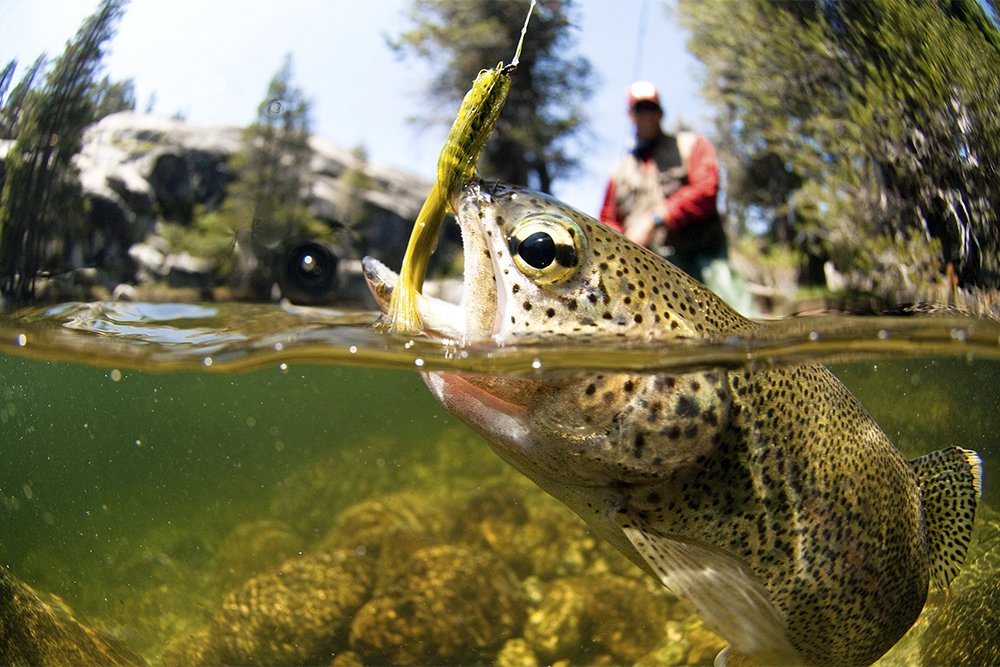
If you are anything like me, you spend a good amount of your free time hunting and fishing. It is an excellent way to enjoy nature, develop a skill, and put meat in the freezer. But how do you make sure you’re safe? Here are some tips!
Having a Safe Hunting and Fishing Trip
I love taking my son out to catch some bass or hunt squirrels. Opening day of deer season is an annual holiday for us. However, there are many dangers to both activities.
People get hurt or killed every year because they are either careless or don’t know enough about safety strategies. In this article, we will cover how to be safe any time you head out to bag some game or hook that big one.
1. Go in Groups if Possible
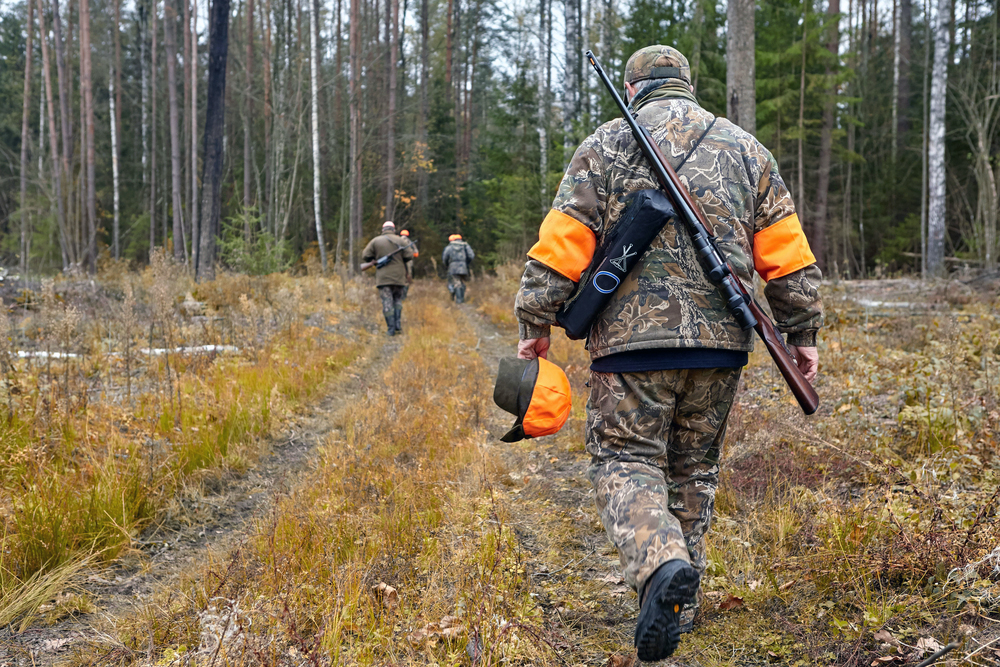
One of the biggest mistakes people make is heading into the wilderness by themselves. If you get hurt or lost by yourself, there’s a chance you might not make it home alive. Even having one additional person with you significantly increases your odds of survival.
That being said, be selective about who you take. Taking a small child with you does not count. Also, everyone knows that one person that seems reckless all the time. It’s probably not a great choice to bring along someone like that. Instead, take someone that you would trust with your life.
2. Know Where Everyone Is Located
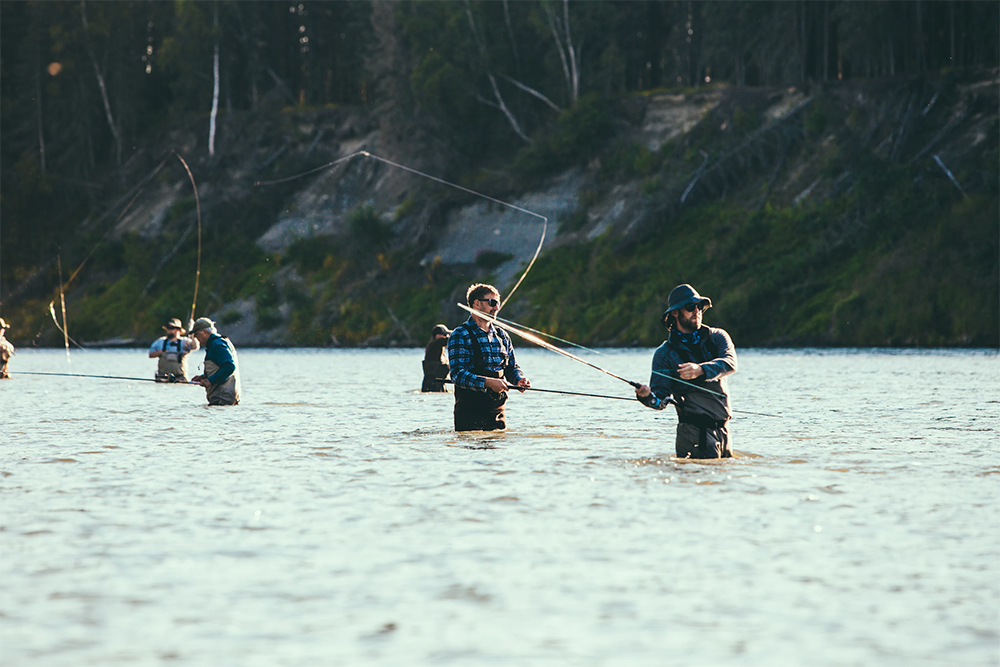
One risk when hunting or fishing is accidentally hurting your buddy. This risk is higher for hunting but applies to both activities.
If you are hunting with a bow or firearm, it would be easy to accidentally shoot someone else in your party. If you are going to split up, have a plan for where each of you will be. Never fire in that direction.
If you are hunting, it is always best to wear hunter orange so you can see each other at a distance. This is required during certain seasons in certain states.
If you are fishing in close proximity to other anglers, it could be easy to accidentally hook someone behind or beside you.
Also, if you know where everyone is you can keep an eye on each other. If someone in your party gets hurt or injured and you know where they are, you will be more likely to notice.
3. Know Your Area
One of the biggest risks with any activity in the wilderness is getting lost. Many people are fine with hunting or fishing in areas with which they are not familiar.
Keep in mind that many of these locations do not have cell phone reception. I suggest that you always scout your area in advance so you can identify landmarks. In addition, always have a map and compass with you and know how to use them.
I have personally gotten lost in an area I have hunted since I was a teenager. The brush had all grown up since the previous year, and nothing was recognizable. Luckily, I was able to get my bearings and still enjoy the hunt.
Not everyone is so lucky. You should also make sure at least one other person knows exactly where you will be and when you should be home.
4. Dress Appropriately
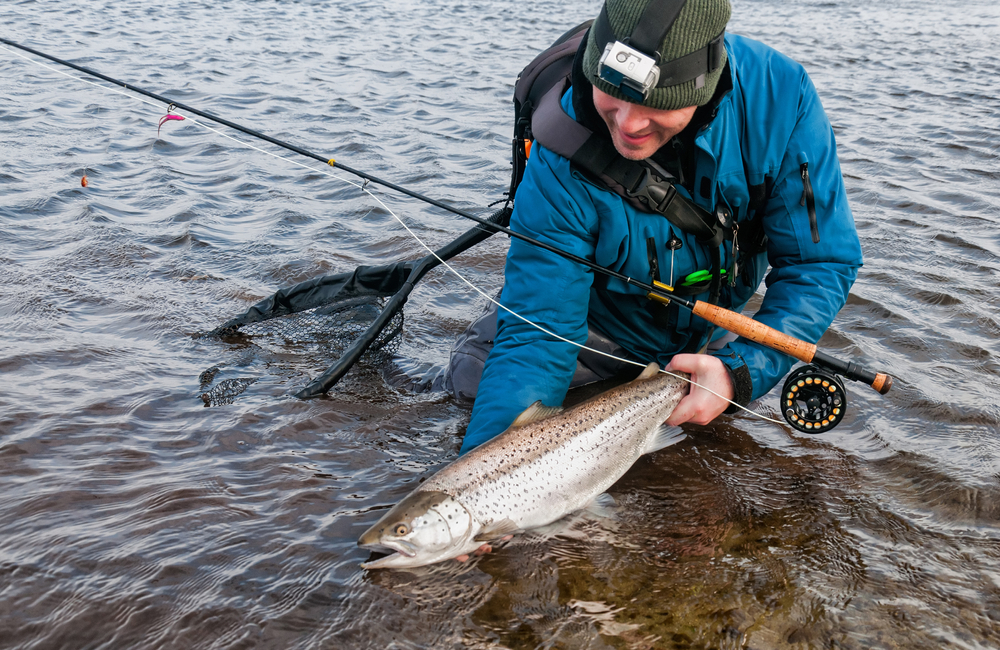
This may sound like common sense, but you would be surprised what I have seen. When you go hunting or fishing, be ready for the weather. Dress in layers so you can adjust to changes in temperature.
Always check the forecast before you go. If there is any chance of rain, be sure to have rain gear. The primary risk is hypothermia. More people die in the wilderness from hypothermia than any other cause.
This is when your internal body temperature drops below 95F. I have been hypothermic several times, and it is not fun. Cold weather is a risk but getting wet is a killer. Your body temperature drops 20 times faster when wet than when dry.
In addition, make sure you have appropriate footwear. Any time I am in the wild I wear a boot with good ankle support that will grip the terrain.
5. Watch Your Footing and Balance
Tripping or slipping and falling is the biggest cause of injuries in the wild. It is so easy to twist an ankle or slip on wet leaves. You can easily break your ankle, injure your knee, or hit your head. Even on flat terrain, this type of injury is very common.
Always pay attention to where you are placing your feet. Take the safest path, even if it is not the quickest or easiest. Avoid loose debris like leaves and rocks if possible. Try to keep multiple points of contact with a walking stick or by grabbing sturdy trees.
If you are wading, pay special attention to the current, depth of water, and footing. Several years ago, I was trout fishing in a swift river with waders. I was walking downstream towards a new spot and started to step into a deeper hole.
The water was already pretty high, but when I turned to face the current it hit my chest and went up over my waders. They were instantly filled, and I had to swim to shore with my waders full. I could have easily drowned if I was not a stronger swimmer.
6. Weapon Safety
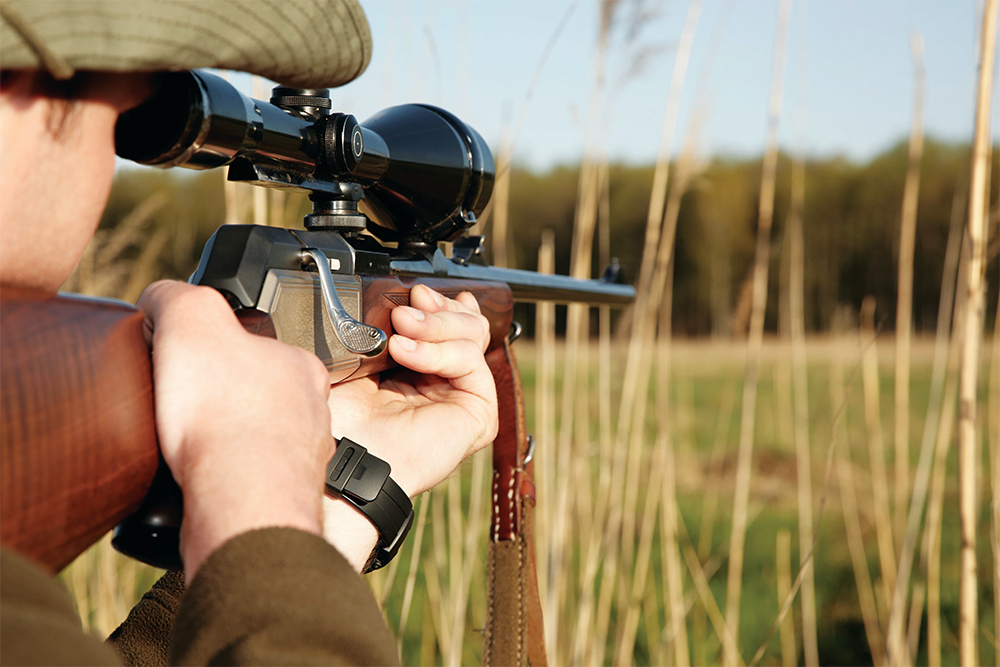
Most of these rules you probably learned in your hunter’s safety course, but let’s review.
- Always treat your weapon as if it is loaded even if you know it is not.
- Never point a weapon at anything you do not intend to kill.
- Always know what or who is behind your target.
- Always point your weapon up or down until you are ready to aim.
- Keep your safety on until you are ready to fire.
- Clearly identify your target before you take aim.
- Inspect and maintain your weapon before and after each use. This means checking the barrel for debris on a firearm and checking the bowstring for frays on a bow.
- If you notice anything about the general function of the weapon that seems off during use, immediately stop and inspect the issue or take it to a professional.
7. Boating Safety
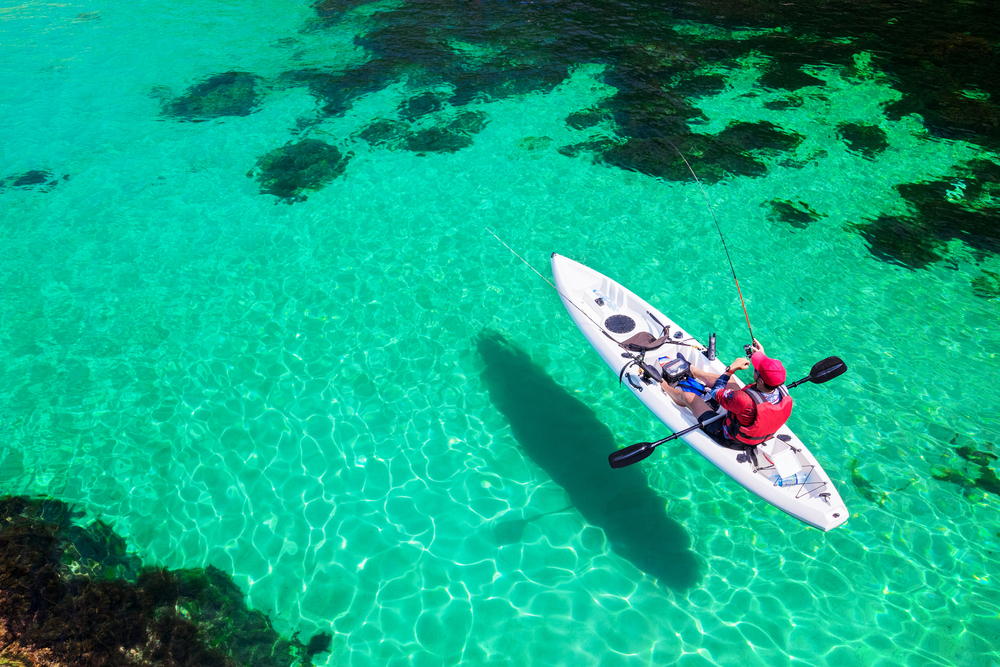
Using a canoe, kayak, or motorboat for hunting or fishing is very common. However, it does provide its own set of risks.
First and foremost, always wear your lifejacket. Keep an eye out for obstructions or other people in the water. Never overload your boat and be sure to balance the weight. This makes a huge difference in your ability to control the boat.
Stay seated if at all possibly. Standing up drastically increases the odds of tipping the boat.
Know the water level of rivers and do not go if the water is too high or too low. I have been running a canoe down our local river since I was six years old. I have never had an issue and certainly never flipped a canoe.
A few years back I decided to risk it when the water level was especially high. I ended up flipping the canoe three times that day. I could have easily been pinned against a root wad if I had not been luckier, and I have not made that mistake again.
8. Knife Safety
Hunting and fishing typically require the use of a knife. Always cut away from yourself when cleaning an animal. Keep your knife razor sharp so you do not have to struggle to get through your cut.
If it would be helpful to use another person to clean your animal, do it. Often, a second set of hands can make a big difference.
Other Tips
View this post on Instagram
- Always take a first aid kit with you and adjust the contents for whatever needs you may have.
- When using a tree stand, never climb with your weapon. Instead, tie on a pull cord, climb the tree, and pull it up when seated. Also, use a harness when you get seated so you cannot fall out of the tree. A family friend fell from a 30-foot tall stand a few years ago and almost did not survive.
- Be mindful of the sun. Fishing and hunting can expose you to sun and heat all day in some cases. This can lead to heatstroke or dehydration. Take plenty of drinking water and sunscreen.
- When hunting or fishing in cold conditions, bring supplies. I like to have a change of clothes, an emergency blanket, and a way to start a fire.
- If you get wet, make sure you have supplies to avoid hypothermia.
- If you hunt or fish before sunrise or coming in after sunrise, always take a flashlight or headlamp. Many people get lost in the woods because they assume that they can find their way in the dark without a light.
- When fishing with barbed hooks, someone might get a hook embedded in their skin or flesh. Never try to pull out a hook. Always cut the line and leave the hook in place while you seek medical help.
Most of what we included in this article is common sense. However, it is very common for hunters and angler to get complacent. The last thing you want is to ruin your experience because someone was not safe.
Take a minute to review these tips before you head out. You will enjoy your trip much more knowing you are being as safe as possible.
Do you have other hunting and fishing tips to add on our list? Let us know in the comments section!
Up Next:
-

 Do It Yourself7 months ago
Do It Yourself7 months agoParacord Projects | 36 Cool Paracord Ideas For Your Paracord Survival Projects
-

 Do It Yourself9 months ago
Do It Yourself9 months agoHow To Make Paracord Survival Bracelets | DIY Survival Prepping
-

 Do It Yourself9 months ago
Do It Yourself9 months ago21 Home Remedies For Toothache Pain Relief
-

 Do It Yourself10 months ago
Do It Yourself10 months agoSurvival DIY: How To Melt Aluminum Cans For Casting
-

 Exports8 months ago
Exports8 months agoAre Switchblades Legal? Knife Laws By State

